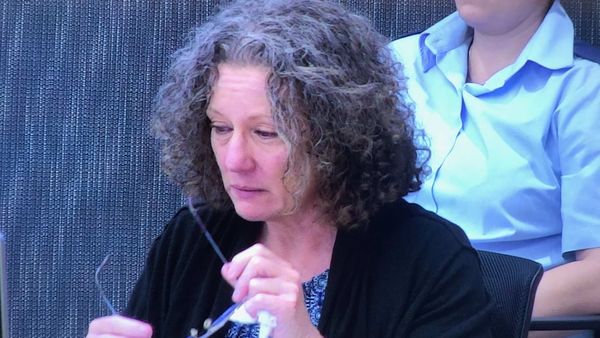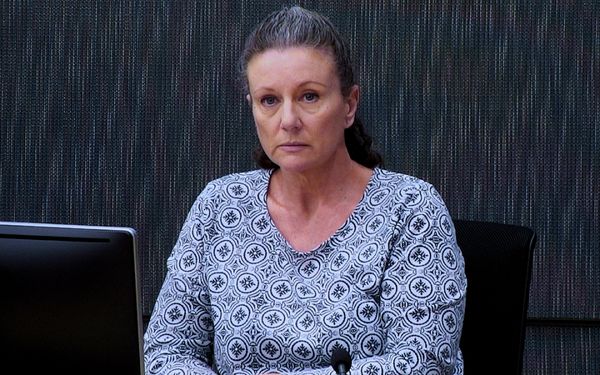
For more than 20 years, the Australian legal system has demonised a grieving mother as a child killer. Kathleen Folbigg was convicted in 2003 of killing her four children, Caleb, Patrick, Sarah and Laura. It is now accepted that her children could quite possibly have died of natural causes. She was finally released from prison on Monday.
Folbigg was released because commissioner Tom Bathurst, who is conducting an inquiry into her convictions, has reached the “firm view” that there is reasonable doubt about Folbigg’s guilt. He has not yet completed his report, and this task should not be rushed. Instead, he has provided information to the New South Wales attorney general, Michael Daley, about why he has concluded that Folbigg is not guilty of killing her children. To his credit, the attorney general has moved quickly and decisively to pardon Folbigg.
Medical research now establishes the reasonable possibility that Patrick, Sarah and Laura died of identifiable natural causes. (The records for Caleb’s life and death are far less complete.)
In 2019, an earlier commission of inquiry concluded that no reasonable doubt existed about Folbigg’s guilt. The present commission was called thanks to the advocacy of medical researchers and the Australian Academy of Science, who felt that medical evidence had been misunderstood by the first inquiry. The scientists have shown courage and dedication in the face of the legal system’s complacency. Thanks to their determination, a wrongful conviction is now being righted.
However, this was always a miscarriage of justice.
Bathurst concludes that the evidence shows that Folbigg was “a loving and caring mother” whose behaviour was “normative of young mothers of infant children”.
At Folbigg’s trial, the prosecution interpreted her diaries and behaviour with no expert evidence about maternal grief and bereavement. The suggestion was made, for example, that her occasional decision to leave a child with family in order to do an exercise class, or work part-time, was evidence of her failure to cope with mothering. These submissions were based in misogynistic stereotypes about self-sacrificial mothering. They had no rational relationship with a charge of murder.
As the medical evidence in favour of natural causes of death has mounted, many members of the legal profession in NSW have emphasised Folbigg’s diaries as proof of her guilt. At trial, the prosecutor described the diaries as “the strongest evidence the jury could possibly have”, likening them to “a machine to look into her mind”.
For more than 20 years, courts have heard wild speculation about the meaning of these diaries. Bathurst thought to ask the experts. He heard from psychologists and psychiatrists that Folbigg’s diaries are normal expressions of guilt and self-blame, of a kind often seen in mothers whose children have died of sudden and unexpected causes. He concluded that the diary entries, which formerly appeared so sinister, may “be readily considered as the words of a grieving mother seeking to come to grips” with the deaths of her children.
There was no evidence of physical harm to any child, at any point. Bathurst observes that it would be “a remarkable coincidence if over a period of 10 years the mother of four children smothered them without leaving any trace on each occasion”.
Bathurst’s inquiry represents the first time that the legal system has properly examined the evidence that supports Folbigg’s innocence. While the genetic research is new, much of the other evidence identified in Bathurst’s memorandum was available in 2003.
Folbigg’s freedom has come despite a legal system that at best resisted and at worst punished her efforts to establish her innocence. Almost no public funding was available for the scientific and legal work that led to her release. She has been made subject to cost orders and held in protective custody as she refused to accept responsibility for crimes she didn’t commit. The most intimate reflections in her diaries and her sincere efforts to assist investigators were met with disdain. Throughout her ordeal, she has been denied the opportunity to grieve her children privately.
The NSW legal system must now begin to grapple with the shortcomings exposed by the Folbigg case. The reliability of medical evidence in all cases must be subjected to much greater safeguards. Misogyny and sarcasm must not substitute for the careful evaluation of evidence in a legal trial. NSW should commit to an independent system of post-conviction review in which the possibility of error is taken seriously. The work of identifying and correcting miscarriages of justice should be properly resourced and highly valued.
As Folbigg adjusts to life outside prison, the NSW legal system has much work to do.
• Dr Emma Cunliffe is a professor at the Allard School of Law, University of British Columbia. She is the author of Murder, Medicine and Motherhood










